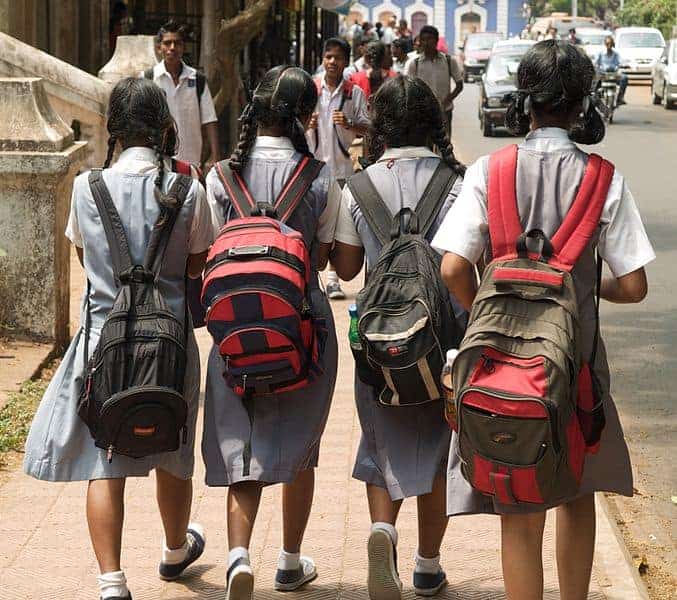The year 2020 is certainly one that will not be forgotten soon for the changes it brought in our daily routines, work and relationships. The challenges faced by school going children and their parents have been particularly severe, given the nearly 18 month closure of schools. Now, as schools reopen gradually, the challenges faced by parents of a school-going child are even tougher. Parents remain divided over the decision to reopen schools. Medical experts are also divided on whether or not parents should send their children to school, to avoid any kind of mental stress that can occur due to the longtime distancing from their peer groups. Some experts say it is better to postpone reopening for two more months as the number of COVID cases has only just started decreasing.
Some school principals feel that if schools plan to start offline classes, it should be in very small groups for shorter daily durations and not more than two days a week. Some states are doing this for students from class 9 to 12.
The junior students need to continue with online classes till cases drop further and vaccination is made available for children. In any case, there can be no compulsion on students to attend offline classes.
Under the circumstances, it is important for parents to be aware of their role and the role of school authorities and prepare their children by following some dos and don’ts. This exercise of self-counselling by parents is the need of the hour. The most susceptible age group can be taken care of by a joint effort where parents play the most important role.
Read more: School reopening in Tamil Nadu: Standard precautions and safety measures to take
Emotional issues, the big challenge
First of all, parents need to realise that many things will not function the same way as it did pre-COVID even as schools reopen. The school’s corridors will not be as buzzing and active. Ensuring standard protocols for COVID-appropriate behaviour may impart a clinic-like look to the school. Parents must understand the huge responsibility on school staff and not over-expect or be demanding.
It is highly advisable for parents to have a school-walk before sending their children and not hesitate in giving suggestions where needed. Schools are planning to arrange staggered meetings with parents and these should never be avoided or postponed.
When a new routine is forced upon schools and students, it takes time to adjust. Parents have to be very patient with their children to adjust to the new time table after such an unusually long break.
Read more: When the screen is your child’s classroom and playground
Emotional handling of children is a big challenge. On the behavioural front, overexcitement on meeting friends after a long gap has to be controlled. The fear of the unknown has to be dispelled by providing proper information on COVID, quarantine, oxygen levels etc. Careful, yet firm discipline to check the lethargy that may have set it will be required.
COVID has played havoc in many families and we must prepare our children to handle news related to tragedies in their own and their friends’ families. Children should also be prepared not to believe rumours or get into gossip-mongering related to COVID.
Due to staggered classes, if a child does not find his immediate/close friends in the same group once school reopens, he should be made to understand the need to adjust in such situations. In fact this will help him widen his circle of friends. Parents must also advise him neither to bully any child nor accept such behaviour from anyone.
Parents should tell their wards not to misuse mobile phones if they are allowed to carry them to school.
Attention to detail
Apart from an extra mask and hand sanitiser, cutlery and napkins should be provided with the food that is given for lunch, so that students do not use their fingers to eat. Water bottles should be carried from home and there should be no sharing of food or water.
Parents must request school authorities to keep a health record of staff looking after the children and premises. No one should be allowed to touch the child. Children should be advised to use the washrooms carefully, following proper instructions.
Textbooks and stationery must be amply provided to avoid any kind of infection spread through sharing.
To remain connected with their child’s activities in school, parents need to spend time with them in the evenings and keep them engaged in some hobby or entertainment to help them unwind. This also gives them an opportunity to share their thoughts and concerns with parents.
Looking at all these through the prism of reality, we need to focus on small and big issues at the same time when schools reopen and gradually guide our children to cope with the situation cheerfully and courageously. Above all, we need to set an example by practicing what we preach.
